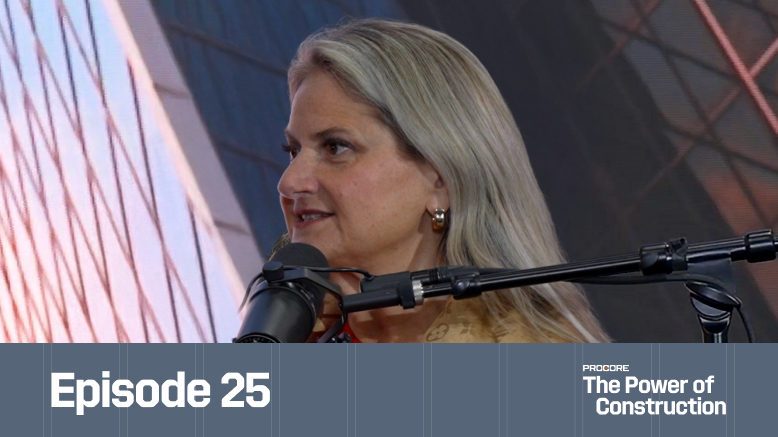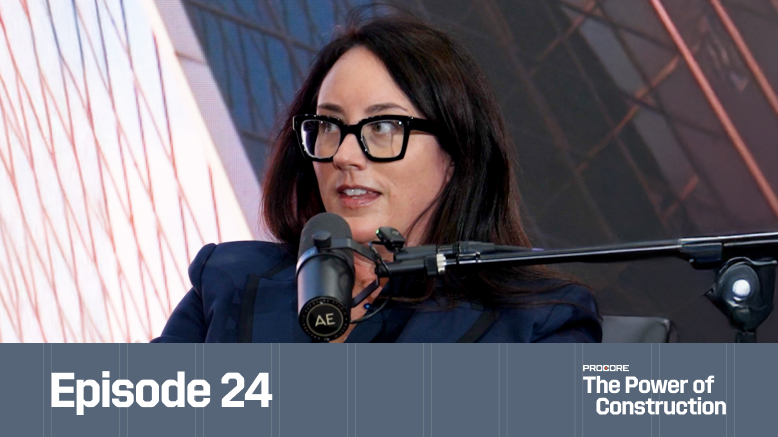— 9 min read
Construction Management Contracts: A Quick, Comprehensive Guide

Last Updated Sep 11, 2025

Tamara Aspeling
Writer & Construction Estimator
12 articles
Tamara Aspeling is a trained construction estimator and project manager with 25 years of industry experience. She started writing professionally in 2008 and has since written extensively for the construction industry, including publications like Modular Advantage magazine. She is also a traditionally published nonfiction author and the owner of The Construction Writer Inc. Tamara studied at Western Province Technical College in South Africa and completed her national certificate in 1999. She also holds an SEO Certification from Google and a Content Marketing Certification from HubSpot.
Last Updated Sep 11, 2025

Anyone who is an avid watcher of construction bidding sites will have noticed that long before a project is advertised for construction bids, there’s often a separate bid for a construction management contract.
Companies that usually bid as a general or trade contractor might wonder what a construction management contract entails, why they exist, and what the benefits for everyone involved in a project are. Let’s take a closer look.
Table of contents
What is a construction management contract?
A construction management contract is a legally binding agreement that focuses on an element of the construction process. But unlike the contracts that a general contractor or subtrade might bid on or perform, a construction management contract is all about the planning, project management, construction contract risk management and other design, engineering and administrative processes.
Usually, a construction management contract is put out to tender by the project owner, which might be a corporation, a government department or a similarly large, institutional client.
Typically, these clients do not have the in-house capacity or capabilities to successfully plan, initiate and bring the project to completion, so they hire a construction management specialist who handles the daily activities associated with every phase of the project.
This usually means the construction manager handles some or all of the design of the project, the bidding process to hire contractors and subcontractors, progress billing, project management and all other work required to get the project from concept to completion.
Unlike a general contractor, who might do some or all of those things for projects, the construction manager hired for a construction management contract does not perform any of the work on site.
Construction managers offer a helpful buffer between the daily needs of a construction site and a busy owner — especially on large-scale projects. A construction manager may also offer knowledgeable insights into anything on the construction build, from the order of operations to contract clauses and beyond, and can provide another step to ensure quality assurance on the project work.

Alex Six
Solution Specialist, C&I Industry Specialist
Procore Technologies
Why use a construction management contract?
In most cases, project owners decide to hire a construction manager because they lack the time, resources, knowledge, or experience to handle them in-house, and this is a fantastic way to get highly skilled project professionals on their team on a project-by-project basis.
Often, construction management projects will include requirements for certified engineers, architects, project managers, and so on, and it’s fairly rare, even for larger general contractors, to have all of those disciplines in-house and have the necessary experience to successfully complete this kind of project.
Construction management professionals can deliver considerable cost and time-saving benefits. The role of a construction manager includes construction risk management, design compliance, cost and time control and overseeing day-to-day and long-term project management responsibilities.
Contractors working on projects managed by a contracted construction manager can benefit from having an objective third party involved, as well as faster turnaround times for all types of communication.
While larger general contractors can sometimes act as construction managers, it’s also quite common for groups of construction management professionals — like multi-disciplinary engineering and architectural firms — to tackle these kinds of projects.
Also, even when general contractors do fulfill some of the responsibilities of a construction manager, they typically self-perform at least some of the work. A purely construction management contract would not include any of the actual construction work.
Initiating a Construction Management Contract
Just like construction projects themselves, there are several ways that construction management contracts might be initiated.
In some cases, the owner or client might contact a shortlist of candidates to manage their project directly, much like any other invited tender or bid.
However, it is far more common for clients and owners looking to maximize value to put construction management contracts out on open tender, allowing all qualified proponents to create and price a proposal.
Typically, construction management contracts have very strict requirements regarding professional experience, project history and track record, financial capacity and similar criteria. So even when these projects are awarded based on an open tender process, there might be a limited pool of prospective construction managers who check all the boxes.
Key Contents of a Construction Management Contract
Even people who have been in the construction world as a contractor for many years might not fully understand what a construction management contract entails, and what construction managers do and are responsible for.
This can vary from project to project, depending on the agreement between the client and the construction manager, but usually, they will include some or all of the following.
Design and Engineering
While certain projects will have feasibility studies and some preliminary design done before a construction management bid is advertised, the construction manager will often be responsible for finalizing the design before construction bids are advertised and awarded.
Scope & Scheduling
Once the final design for the project is completed and approved by the client, the construction manager will be responsible for writing the full scope, creating a preliminary schedule and defining the contract period.
Advertising, Adjudicating & Awarding Bids
Once all the design, scoping and specifying is completed, the construction manager will usually create construction bid packages, advertise them, adjudicate and award them — often working in conjunction with the client or owner’s direct representative.
Budgeting
Construction managers are deeply involved in drafting and managing project budgets. They analyze project requirements and collaborate with other professionals to make sure the budget aligns with the project’s scope and objectives. As work progresses, the construction manager adjusts the financial plan based on actual costs.
Managing Projects
From updating scheduling to responding to RFIs, issuing change orders and managing progress billing and payments, the construction manager aids other team members in making the project work.
Project Closeout
The construction manager is usually responsible for collecting and compiling close-out documentation for the client or owner.
Construction management contracts may include other kinds of requirements that are specific to the project, and the more complex the project is, the more requirements there are likely to be.
How do construction management contracts work?
The bidding process for a construction management contract is very similar to a contract to perform the work, in that the owner creates a scope of work for the construction manager, the project is advertised, and bids are received. After the adjudication process is completed, a construction manager will be appointed.
Once appointed, the construction manager has the legal authority to act as the owner’s representative, which means that they can advertise bids for the project, award contracts and subcontracts, answer questions and make decisions for the project, within the framework of the construction management scope of work.
Construction managers can act as the owner’s representative, often called Construction Manager as Agent. In the Construction Manager at Risk (CMAR) delivery method, the construction manager is frequently a consultant hired by the owner to manage the GC or an employee of the GC who oversees the construction project.

Alison Hart
Senior Manager of Project Solutions
Mortenson
Usually, the construction manager will have meetings with the owner or client, but they will be much less frequent than the meetings held with contractors and subcontractors and are more likely to focus on high-level issues.
Sometimes, owners will appoint a specific representative for the construction manager to report to. This person may be responsible for final approval of changes above a certain value, or any other major variations to the original scope of work. Usually, however, construction managers do have autonomy to approve most changes to prices, scope and timelines.
In these cases, the construction management contract sets out the criteria for each decision-making process, so everyone knows how to handle different requests when they come up.
Construction management contracts can also have different types of payment structures: Some might be bid as a lump sum for the whole project, usually if the project is smaller and less complex.
However, it is far more likely that a construction management contract will be based on monthly retainers or even hourly rates, which will be billed based on the work the construction manager completes on behalf of the owner or client.
When a construction management contract is billed at time-based rates, it’s common to have different rates and costs associated with distinct types of work and specialties, too, so there may be one rate for a design and engineering team, and another for project management and estimating, and so on.
How Owners and Clients Can Create Construction Management Contract Success
Construction management contracts are generally not a low-cost item for a project owner or client, so it’s especially important to everyone involved that they are successful.
One of the best ways to ensure that happens is for clients to decide to hire a construction manager on day one. Construction management contracts are usually most successful if the construction manager is involved as early as possible, so they can have input at every stage of the project.
By getting involved early in the design process, a construction manager can add significant value and prevent costly changes down the line. It costs nothing to erase something on paper or change it in the computer design or model, but it costs a lot if the material has already been ordered and is in the field.

Daphene Koch
Founder & Owner
Build Your Know LLC
Another key factor in the success of a construction management contract is to make sure communication flows freely between the various key players — and that the project implements good document control measures. Using construction contract management software is one effective way to do this.
It’s also important that any construction management contract is clear about the roles, responsibilities and authority of all parties — and includes a clear process for any changes or additions to both the construction management contract and the contracts to perform the work.
A clear chain of command can make all the difference in reducing delays and the cost and time overruns associated with delayed decision-making.
Getting Professional Skills & Experience On-demand
Whatever the reason for a construction management contract, the goals are always the same: maximize efficiency and profit, and minimize risk and friction.
The biggest benefit to hiring a construction manager rather than working directly with general contractors and sub trades is that the project owner gets to work with a highly skilled and experienced team — often with construction contract management software and processes already defined and in use — without having to hire a full-time team.
This allows project owners to tackle very complex construction projects whenever they need to, without having to worry about recruiting and retaining the necessary people to get them successfully completed.
Was this article helpful?
Thank you for your submission.
0%
0%
You voted that this article was . Was this a mistake? If so, change your vote
Scroll less, learn more about construction.
Subscribe to The Blueprint, Procore’s construction newsletter, to get content from industry experts delivered straight to your inbox.
By clicking this button, you agree to our Privacy Notice and Terms of Service.
Thank you!
You’re signed up to receive The Blueprint newsletter from Procore. You can unsubscribe at any time.
Categories:
Written by

Tamara Aspeling
Writer & Construction Estimator
12 articles
Tamara Aspeling is a trained construction estimator and project manager with 25 years of industry experience. She started writing professionally in 2008 and has since written extensively for the construction industry, including publications like Modular Advantage magazine. She is also a traditionally published nonfiction author and the owner of The Construction Writer Inc. Tamara studied at Western Province Technical College in South Africa and completed her national certificate in 1999. She also holds an SEO Certification from Google and a Content Marketing Certification from HubSpot.
View profileExplore more helpful resources

Who is accountable for innovation in construction?
Everyone says construction needs to innovate—but no one agrees on who’s actually responsible for making it happen. Is it the owner? The builders? The tech vendor? Or is innovation everyone’s...

How Are Partnerships in Construction Being Redefined?
In a market where cost, speed, and quality are table stakes, owners are demanding more than projects delivered on time and on budget. They want trusted partners who bring strategy,...
What Does Construction Leadership Look Like in the Age of AI?
In this episode of The Power of Construction, hosts Sasha Reed and Andy Rampton examine how AI is reshaping leadership across industries. Guests Fiona Wilhelm, Director of Artificial Intelligence at...

What Drives Better Safety Outcomes—Carrot, Stick, or “Zero Harm”?
On paper, construction has never looked safer. In reality, mental health claims are rising, workers are disengaged and the compliance playbook is broken. Garry Mansfield, co-founder of Scratchie, argues the...
Free Tools
Calculators
Use our calculators to estimate the cost of construction materials for your next project.
Templates
Find a template to help you with your construction project tasks.
Material Price Tracker
Get the latest U.S. retail prices and view historical trends for common building materials.
Glossary
Explore key terms and phrases used in the industry.
